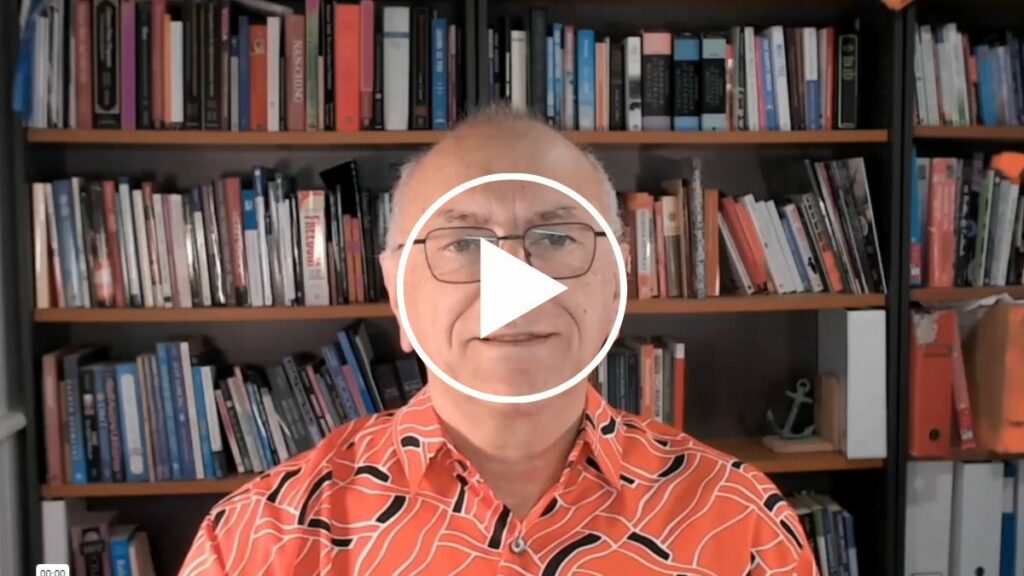In a world where quick fixes are often sought after, antidepressants tend to be the go-to option for doctors treating patients with depression, anxiety, and other mental health concerns.
However, as we’ve mentioned, while antidepressants can be effective, they also come with their drawbacks. This leads some patients to consider discontinuing medication once they’ve found alternative treatments for their mental health issues.
Yet, ceasing antidepressant medication isn’t a straightforward decision, particularly from the perspective of acupuncturists who may feel torn about whether to support their patients in this choice.
So, what should we do when patients seek our guidance on this matter? Let’s dive deeper into this conversation.
Why Deprescribing Is a Challenge
When patients choose to discontinue their antidepressants, the body undergoes complex adjustments initially, as highlighted by Dr. Cathy Andronis, chair of the Specific Interest Psychological Medicine group, in a news statement from the Royal Australian College of General Practitioners (RACGP). Dr. Andronis noted that while antidepressants can significantly benefit some patients, tapering off them poses a challenge due to the need for an extended deprescribing period.
“They’re typically prescribed for a specific duration,” she explained, “usually 6-12 months. However, they often end up being continuously prescribed over time.”
Indeed, a study supported this observation, indicating a correlation between the duration of antidepressant use and the risk of experiencing withdrawal symptoms. The longer the duration of use, the greater the neurological adaptation required.
Consequently, many medical practitioners, including acupuncturists, encounter difficulties when it comes to deprescribing antidepressants due to the potential risks involved. Patients may face a resurgence of mental health issues or struggle with withdrawal symptoms.
But what exactly do these withdrawal symptoms entail?
Understanding the Withdrawal Response

When patients abruptly halt a medication or treatment they’ve been accustomed to, it can trigger a withdrawal response. This occurs as the body adjusts to the absence of the medication.
Dr. Andronis explained, “People who have been on medications for a long period of time, for many years, can experience quite a significant withdrawal response that is prolonged because we don’t fully understand how antidepressants affect brain chemistry, and when they’re removed, there’s a lot of readjustment.”
These symptoms, often termed antidepressant discontinuation syndrome, may manifest differently from person to person. Research also suggests that withdrawal symptoms are more likely to affect individuals who have been on antidepressants for longer than four weeks. Typically, these symptoms can persist for weeks and are specific to certain antidepressants.
Some of the common withdrawal symptoms include:
-
- Anxiety
- Insomnia
- Irritability
- Dizziness
- Nausea
- Fatigue
- Headaches
- Vomiting
- Tremors and restless legs
However, experiencing these symptoms doesn’t necessarily indicate addiction to antidepressants. Instead, it reflects the body’s adjustment to the absence of the medication. Drug addiction typically involves intense cravings and results in long-term changes to brain chemistry.
While these withdrawal symptoms can indeed be uncomfortable and pose challenges when discontinuing antidepressants, these medications typically do not lead to addiction issues.
As Acupuncturists, What Do We Do?
In my years of practising acupuncture, I’ve encountered numerous patients grappling with the decision to discontinue their antidepressant medication. Many turn to acupuncture, seeking a more natural approach to finding relief.
While I respect that antidepressants are prescribed with careful consideration for patients’ mental health, many of my patients express feeling overly reliant on these medications. It’s disheartening to see some individuals remain on antidepressants for years without reevaluation.
When confronted with these scenarios, my approach is to dive into the patient’s background and review their medical history comprehensively. This allows me to thoroughly understand their condition before making any decisions that could impact their treatment journey.
For instance, I recall a patient suffering from severe osteoarthritis who relied heavily on opioids for pain relief. Through acupuncture treatments, we were able to gradually reduce her dependence on these heavy painkillers within just a few weeks.
After several months of consistent acupuncture sessions, she approached me with a significant question: “Can I stop my antidepressants?” She had been on them for 16 years but no longer felt the need for them due to the improvements in her overall well-being.
Reviewing her medical records, I discovered a previous attempt by another doctor to wean her off antidepressants, resulting in the return of her symptoms within six weeks. However, this time felt different. With acupuncture as a viable alternative, I was confident we could successfully taper off her antidepressants.
We proceeded cautiously, gradually reducing her medication while closely monitoring her progress. Today, she remains free from antidepressants, a testament to the effectiveness of holistic approaches like acupuncture.
If you find yourself grappling with similar situations, here’s my advice for you:
It is important to have a good relationship with the patient’s GP. As the prescribing doctor, he would have the final say. But you can be an advocate for the patient to them, particularly describing how they have progressed under your care with acupuncture. The doctor would ideally reduce the dose in small increments and you should offer to continue acupuncture treatment weekly at this time. The patient should be made aware of the symptoms of Discontinuation Syndrome. Especially as they may interpret these symptoms as signs that the depression is returning. Reassuring the patient is essential.
If such symptoms do occur, the dose should not be dropped until the symptoms have abated, and then reviewed by the doctor. Then the next cycle begins, until the patient is finally off medication. As mentioned above, this may take some months. But the reward is worth it. The patient will feel a full range of emotions again.
It’s All About What the Patient Needs

Ultimately, our priority is the well-being of our patients and ensuring they receive the best possible care. While we can’t simply advise them to stop their medication, we can guide them in the right direction by encouraging them to consult with their psychiatrist or psychologist first.
In the meantime, let’s remain committed to our role in helping patients heal and improve their well-being to the best of our abilities. This may involve initiating more conversations with medical practitioners about exploring natural treatment options like acupuncture for individuals dealing with mental health issues. Together, we can provide comprehensive care that prioritizes the holistic needs of our patients.
DID YOU LIKE THIS ARTICLE? YOU MIGHT ALSO LIKE:
The Healing Fusion: When Modern Medicine Meets Ancient Wisdom in a GP’s Practice
Bridging East and West: Integrating Acupuncture into Modern Mental Health Practices





